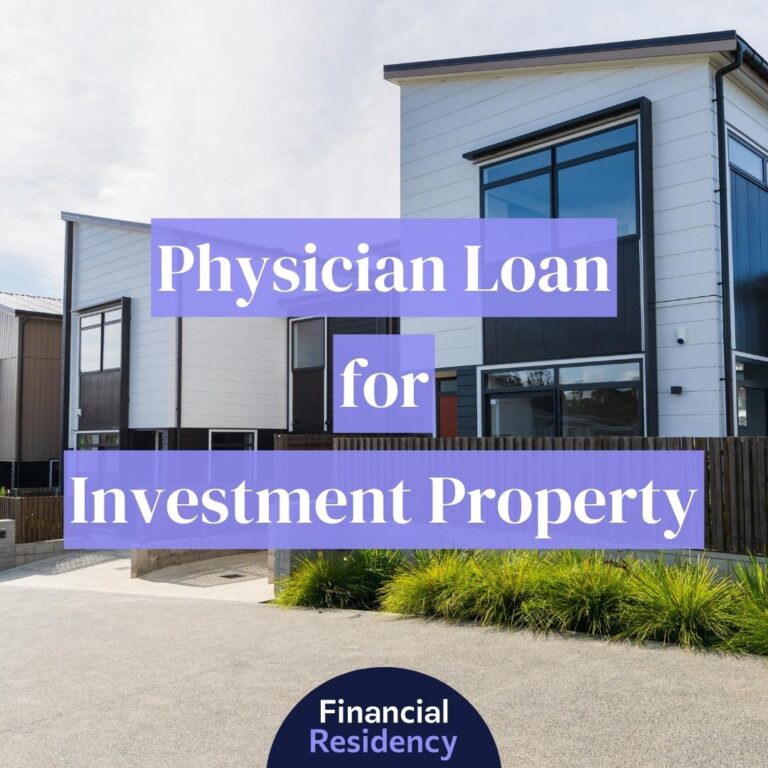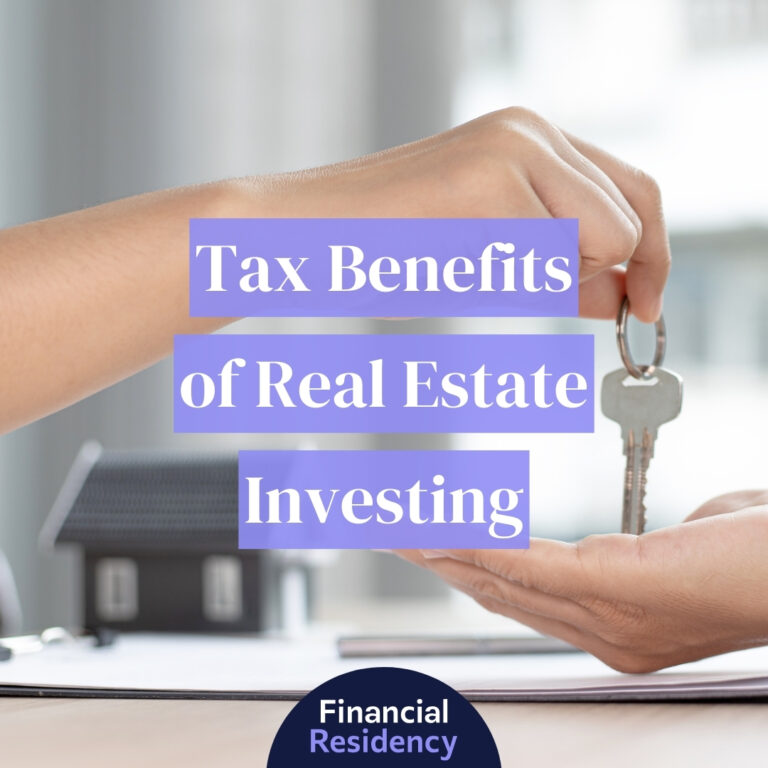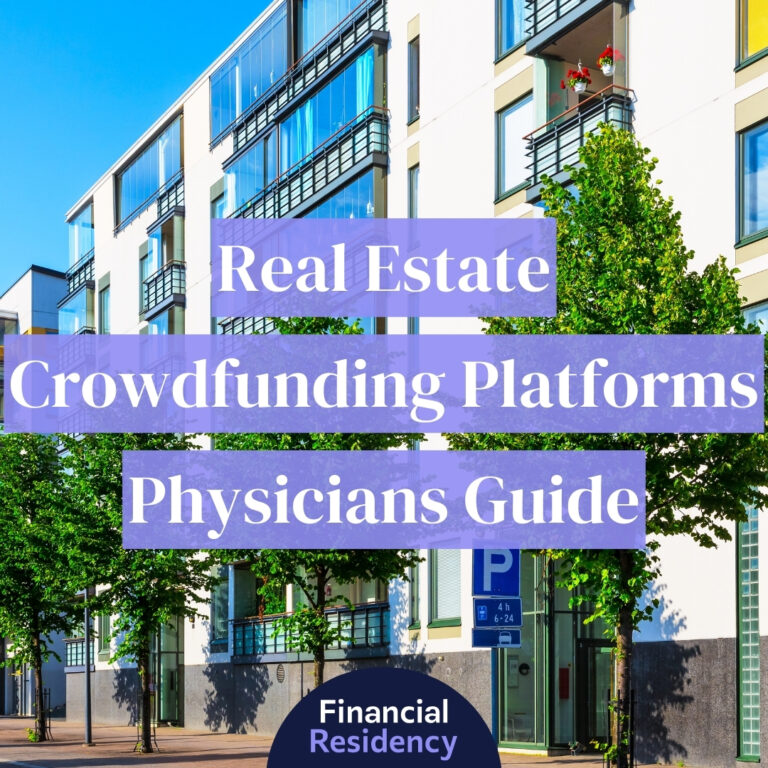Investing in real estate offers a multitude of ways to generate income, not to mention the opportunity to earn some of the best returns on investment available.
With your physician income providing you with the funds to get started, investing in real estate can set you on a path to reducing your clinical hours or even retiring early.
As physicians, there are certain real estate investment options that are better suited to your skillset and limited time than others. Take a moment to learn about your lifestyle, schedule, and goals to find the best solution for you and your family’s financial future before you start investing.
Best Ways to Start Investing In Real Estate
Let’s take a deep dive into the best ways to start investing in real estate:
1. Buy REITs (Real-Estate Investment Trusts)
Public real-estate investment trusts are traded on the stock market, where you just put your money in and you get some type of return; whereas, private real-estate investment trusts are not publicly traded.
You just seek out companies or platforms to put these deals together and you can pick and choose where your money is going.
According to Dr. Kim, real estate investment trusts are like mutual funds for rental property or real-estate. These can consist of public or private trusts.
2. Syndications
A syndication is the pooling of multiple investors money together to purchase a larger piece of real estate than you could all afford alone. In this type of investing, you provide the syndicator with your capital and receive income payouts, either monthly or quarterly. Real estate syndications are the ultimate in passive income, with you making the initial investment, and the syndicator doing the day-to-day work. Picture your real estate investments making money while you see patients, and someone else worries about the broken toilet in unit 6.
No one will call you about a leaky sink, and someone with the experience and know-how will be vetting all the potential tenants for you, arranging contractors as needed, and ensuring your investment is well managed. The syndicator will also find better deals than you can alone, thanks to their network of investors, brokers, and agents. Finding a great off-market deal is a feat a beginner is unlikely to manage, without a significant commitment to networking.
You will not have to control the day-to-day decisions about the property in syndication, which for some can be a negative thing. For others, this is a huge asset. An investment in a syndication is an illiquid investment, meaning once you invest your money, you are in it for the time specified in your original agreement. The taxation of syndications can be complicated, but you do still benefit from the syndicators used of depreciation to lower your tax burden.
Investing in a syndication is best if you are looking for steady cash flow from your investment and have a long (> 5 years) time horizon and can tolerate illiquidity. Syndications offer a real estate investment with a high return and almost no time commitment, after your initial due diligence. This makes them a stellar option for those who want to get into real estate, but don’t have the time or knowledge base needed. Because they are traditionally a lucrative investment and therefore desirable, most syndicators have a minimum investment: anywhere from $25,000 to over $250,000. $50,000 will allow you to participate in many syndications.
3. Crowdfunding
Sometimes, investors of larger properties also use a newer tool called crowdfunding. Crowdfunding utilizes social media outlets to bring in multiple investors that will invest small amounts of money, which results in large sums of money.
This allows you the opportunity to invest in some larger projects that you would not otherwise be able to afford on your own. If you are someone who is interested in being a credit investor yourself, there are certain criteria that you have to meet.
4. Fix and Flip
Flipping a house is a popular option, thanks to certain television channels, and there is the potential to reap a high return here as well. Flipping does not have the steady cash flows of a syndication, but may pay out larger amounts when you finally sell.
With flipping, you will have ultimate control. Every decision and responsibility falls to you. You will need to find the best option when searching for properties, arrange financing, purchase the property, personally guarantee the loan, plan the renovations, hire contractors or do the work yourself, and eventually hire a realtor to sell.
There is a huge time commitment and steep learning curve with flipping a house. You will need to have renovation skills and time, or the ability to source and manage reliable contractors. There are holding costs to consider, depending on how long the renovation lasts and how long it takes to sell. And timing is everything – the longer the flip takes, the more money you lose on interest and utilities. Of course, the market can go up or down while you renovating, so your projected profit is just – a projection.
You also risk losing more than you invest if you uncover repairs that need to be done but were not prepared for, and this happens frequently so most flippers advise that you have a contingency budget of 20%. Even then, it is easy to go from a gain to a loss because you never know exactly what you will discover as you start investing. Also, consider that your returns will be taxed as ordinary income and not capital gains if you own the real estate for less than 12 months.
Flipping is best for those who want to dive into real estate investing head first – you’ll need around $50,000 for the down payment, renovations and a reserve for surprise expenses. However, if you can survive or even thrive on the drama and stress, flipping can create an opportunity to grow your wealth quickly and supercharge your real estate portfolio. But it’s not for the faint of heart.
Active vs Passive Real Estate Investing
First, real estate beginners need to choose between active and passive investing. Let’s quickly highlight the difference between passive and active investing.
Passive investing is a way to invest in real estate that does not require your daily participation. You make an investment, after doing your due diligence, then turn over all decision making to someone else. You get a regular payout from the investment without any additional work after your initial research. Passive investing is best for those with money but little time, passion or expertise.
Active investing, on the other hand, means you are running the show. Everything depends on you. You make the decisions, like what properties to buy or sell, and how to renovate. This is a labor-intensive form of investing although it can be a lucrative way to earn money for those looking for income outside of medicine. Active investing is best for those who want to get their hands dirty and learn the nitty gritty details of real estate in order to maximize profits.
Real Estate Terminology
Let’s start with some basic terminology and explanations of some of the real-estate lingo.
 Direct Ownership and Indirect Ownership
Direct Ownership and Indirect Ownership
There are two different types of ownership, which are direct ownership and indirect ownership.
Direct ownership is something that most everyone can understand the concept of.
In a nutshell, you buy a rental property; rent it out to someone (a tenant); and you, as the landlord, collect the rent on that property and are directly responsible for the management of that property.
Indirect ownership is when you own the property but pay another entity to manage the property for you. Indirect ownership is the preferred method for most individuals because it alleviates the headache that comes with property management.
For many, especially busy physicians, they don’t want to deal with interrupted sleep that comes in the form of phone calls in the middle of the night due to plumbing issues and such.
Having good management over your rental properties mitigates some of the issues that can occur at any given time and allows you the luxury of not having to be directly involved with the normal day-to-day problems that can arise.
Should You Invest in Real Estate?
Before you make any decisions on what to do with that hard-earned $50,000, carefully consider how much free time you have. Hour after hour, day after day, as a physician, we carry a high mental load, and our work often follows up home. To come home at the end of a shift and be required to make more decisions about houses, renovations, ongoing projects, tenant maintenance issues, setting aside time to interview potential tenants, and collaborate with partners, will take up more headspace and time. Even if you find a challenging avocation outside of medicine energizing, it does still require time to invest actively, not passively.
Consider where you are at right now, as well as where you will be throughout the lifetime of your investment. Do you have a family, or will you want to start one? Do you have enough time to maintaining your friendships? What are your other personal goals and responsibilities? How much attention can you spare from those areas of your life? These are important considerations before committing to any project, but especially the investment options that are more time-intensive, like flipping.
As you can see, there are many ways to grow your wealth and income with real estate investing. For most physicians, a hands off investment is the most practical option, although there are plenty of physician flippers out there. Generating income from syndications, for example, would allow you to invest in real estate while eschewing the time commitments, liability, and wealth of knowledge needed to invest actively. Fixing and flipping a property would be more suited to someone with a part-time or flexible job, or even a doctor ready to move on from medicine. Although active investing can times appear to be the fun, shiny option, or and one with the highest income potential, generating a solid, consistent income from a passive investment is the real golden ticket for most physicians in the early or middle of their careers.
Have questions about what you just read? Let me help you. Reach out to me at drcathycarroll@gmail.com




